How Much Does PEO Cost in 2025?
Depending on the number of employees you have, in 2025 a PEO will cost around $30 per month plus $5 to $8 per employee.
What is PEO? A Professional Employer Organization (PEO) is a company that provides outsourced HR services to businesses, including payroll processing, employee benefits management, compliance with employment laws, and workers’ compensation. PEOs co-employ a company’s workforce, handling HR tasks while the business retains day-to-day control of employees. Businesses hire PEOs to save time, reduce administrative burdens, lower HR costs, and ensure compliance with complex regulations, enabling them to focus on growth and operations. With that in mind, PEOcosts.com helps small business calculate the cost associated with hiring a PEO.
Featured PEO Companies

Pros: Perfect for small businesses
Cons: Fewer benefit options
Cost: $50/Month + $8/User
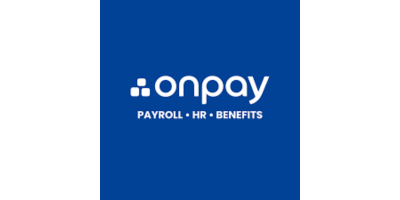
Pros: User-friendly interface
Cons: Fewer integrations available
Cost: $29.99/Month + $6/User
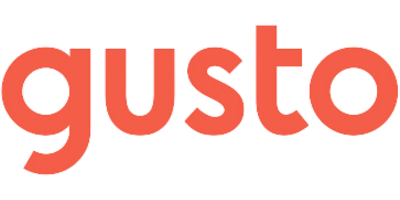
Pros: Intuitive user experience
Cons: Limited outside U.S. services
Cost: $40/Month + $6/User

Pros: Integrated platform simplicity
Cons: Complex pricing structure
Cost: $35/Month + $8/User

Pros: Robust automation tools
Cons: Some features cost extra
Cost: $29.990/Month + $5/Employee
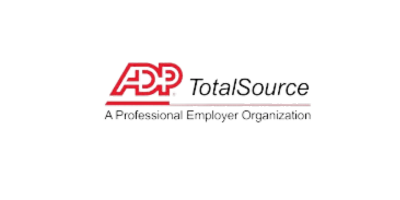
Pros: Strong compliance support
Cons: Higher cost
Cost: 2% to 10% of wages
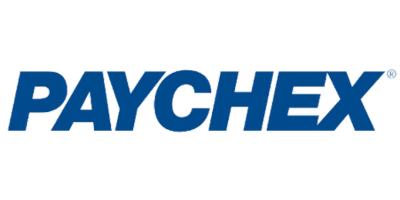
Pros: Strong payroll features
Cons: Complex interface
Cost: $50/Month + $8/User
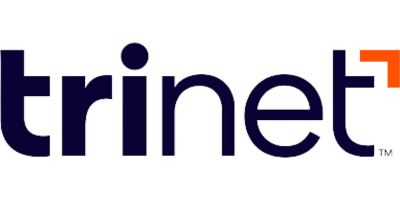
Pros: Industry-specific solutions
Cons: Complex platform setup
Cost: $100-$140/employee per quarter

Pros: Perfect for medium-sized companies
Cons: High-cost services
Cost: $99/Month for up to 10 employees
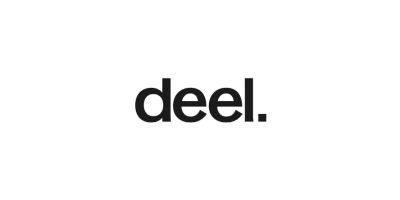
Pros: 20% less employee turnover
Cons: Long contract terms
Cost: $49 per active contract/month
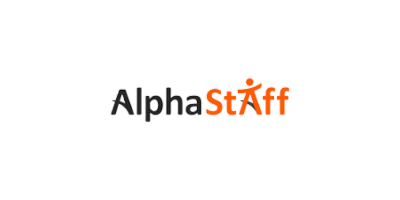
Pros: Perfect for risk management
Cons: Smaller benefits offerings
Cost: $40-$160 per employee/month
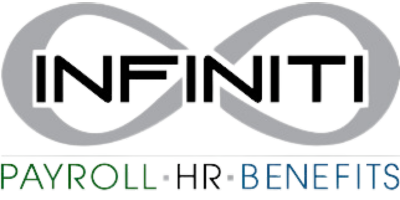
Pros: Perfect for risk management
Cons: Smaller benefits offerings
Cost: $40-$160 per employee/month
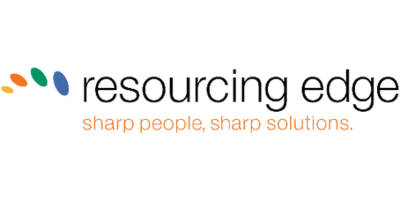
Pros: Single Point Contact
Cons: Only Covers 44 States
Cost: Not Published
Calculating the Costs
What Factors Impact PEO Costs?
When looking for a PEO near you (aka Professional Employer Organization) you’ll find the costs are influenced by a variety of factors, which can make pricing vary widely from one company to another. These costs depend on the services offered, the size of the business, the industry, and other specific needs of the client. Here’s a breakdown of key factors:
Number of Employees
The larger the workforce, the higher the total PEO cost, although the cost per employee may decrease with scale.
Types of Services Needed
Basic services, such as payroll and compliance, are cheaper than more comprehensive HR solutions like employee training or legal assistance.
Industry Risk Level
Industries with higher risks (e.g., construction) may face higher costs due to increased insurance and compliance needs.
Level of Customization
Companies needing highly customized PEO solutions will likely pay more than those opting for standard service packages.
Geographic Location
State and local employment laws vary, affecting the cost of compliance and labor management.
Employee Benefits
Offering extensive employee benefits, such as health insurance, retirement plans, and wellness programs, will increase costs.
Length of Contract
Some PEO providers offer discounts for long-term contracts, whereas short-term contracts may come with higher fees.
Service Level Agreements (SLAs)
Higher service guarantees, including faster response times and dedicated account managers, often come with a premium.
PEO Cost Per Employee
PEO Average Cost Ranges Between 3%-10% of Employee Wages.
PEO Service vs. Inhouse | Pros and Cons
When comparing PEO services to in-house HR, businesses must weigh the advantages and drawbacks of each. PEOs handle HR, payroll, compliance, and benefits administration, reducing the burden on internal staff. However, maintaining an in-house team offers more control over HR processes but can be costlier and more time-consuming.
Pros of PEO Service
- Access to HR expertise and compliance support
- Cost savings on employee benefits and insurance
- Reduced administrative burden for small businesses
- Ability to scale services as the company grows
Cons of PEO Service
- Less control over day-to-day HR functions
- Additional cost of outsourcing fees
- Potential communication delays due to third-party involvement
Pros of In-house HR
- Complete control over HR processes and policies
- Personalized HR approach tailored to company culture
- Immediate internal communication and quicker decision-making
Cons of In-house HR
- Higher costs for salaries, benefits, and training
- Requires a larger team to handle complex HR needs
- Time-consuming and resource-intensive for smaller companies

List of Professional Employer Organization Companies and Their Pricing
Here’s a list of popular PEO companies along with their latest pricing information available on their websites. Keep in mind that costs may vary based on your unique requirements and the level of services you choose. Since prices frequently change, it’s recommended to request personalized quotes for the most up-to-date pricing details.
Justworks PEO Cost
Pricing: $59/month per employee for PEO Basic HR Essentials, Support, and Compliance, or $109/month per person for PEO Plus which includes Advanced HR, Benefits & Support.
What sets Justworks apart: Transparent pricing and ease of use, especially for small to medium-sized businesses.
TriNet PEO Cost
Pricing: Custom pricing based on company size and needs (average cost: $100-$150 per employee/month).
What sets TriNet apart: Industry-specific HR services tailored to various verticals like technology, life sciences, and nonprofits.
Insperity PEO Cost
Pricing: Custom pricing (average cost:1.25%-1.4% % of total payroll).
What sets Insperity apart: Extensive employee benefits options, including 401(k) plans, which rivals bigger PEOs.
Paychex PEO Cost
Pricing: Custom pricing based on company needs (typically $55-$150 per employee/month).
What sets PAYCHEX apart: Full integration with Paychex’s payroll and HR software, offering scalability for small businesses.
ADP TotalSource PEO Cost
Pricing: Custom pricing based on the size of the business (generally 2%-12% of payroll).
What sets ADP apart: Access to ADP’s robust payroll and HR technology suite, with vast resources and scalability.
Gusto PEO Cost
Pricing: $60 per month plus $9 per employee/month for core HR services; PEO services are customized.
What sets Gusto apart: A highly user-friendly interface that simplifies payroll and HR tasks for startups and small businesses.
Oasis (Now PAYCHEX) Outsourcing PEO Cost
Pricing: Custom pricing based on company needs (typically $55-$150 per employee/month).
What sets Oasis apart: Specializes in working with businesses across a range of industries, providing tailored support and services.
CoAdvantage PEO Cost
Pricing: Custom pricing, typically a flat fee or percentage of payroll. Typically costs between $20 – $30/employee per week
What sets CoAdvantage apart: Highly personalized services, especially for mid-sized businesses seeking scalability and flexible solutions.
VensureHR PEO Cost
Pricing: Custom pricing based on the number of employees and services.
What sets VensureHR apart: Known for its flexibility in offering customized solutions across various industries, particularly for small to medium-sized companies.
XcelHR PEO Cost
Pricing: Custom pricing based on the size of the business and service requirements. Estimated between 4%-12% of wages.
What sets XcelHR apart: A comprehensive service portfolio at a competitive price, with strong focus on compliance and risk management.
For precise and current pricing, it’s often necessary to request a custom quote based on specific business needs since many PEOs tailor their pricing to factors like employee count and industry. You can also click below to be contacted buy some of the biggest brands in PEO to receive highly competitive quotes.
| Provider | HR Outsourcing | Payroll/Tax Filing | Safety Audits & Training |
| Justworks | ✅ | ✅ | ✅ |
| OnPay | ✅ | ✅ | ❌ |
| Rippling | ✅ | ✅ | ✅ |
| Paychex Flex | ✅ | ✅ | ❌ |
| ADP Total Source | ✅ | ✅ | ✅ |
| Deel | ✅ | ✅ | ✅ |
| Insperity | ✅ | ✅ | ✅ |
| TriNet | ✅ | ✅ | ✅ |
| Gusto | ✅ | ✅ | ✅ |
Simplify operations by outsourcing to a PEO for as little as $5 per employee, plus a low monthly base rate. Focus on growth while the experts handle your HR needs!
Drowning in tedious administrative tasks? A PEO solution takes the burden off your shoulders, so you can say goodbye to those worries for good.

What Services Are You Paying a PEO For?
Companies pay a Professional Employer Organization (PEO) to handle a wide range of essential business functions, primarily in the realm of human resources, payroll, employee benefits, and compliance. By outsourcing these tasks, businesses can focus on their core operations while leveraging the expertise and infrastructure of the PEO. Here are the key services companies typically pay a PEO to handle:
1.Payroll Processing: PEOs manage the complete payroll process, including calculating wages, withholding taxes, ensuring tax compliance, and issuing payments. They also manage direct deposits and provide accurate reporting, reducing the administrative burden on businesses.
2.Employee Benefits: PEOs offer access to comprehensive employee benefits, such as health, dental, and vision insurance, retirement plans (like 401(k)s), and even life and disability insurance. They leverage their size to negotiate better rates and provide benefits packages that small businesses might not otherwise afford.
3.Human Resources Support: PEOs take care of various HR tasks, including onboarding new employees, drafting employment agreements, creating employee handbooks, and offering HR consultation on issues such as employee disputes and performance management.
4.Compliance: PEOs ensure that businesses comply with federal, state, and local labor laws, handling tasks like workers’ compensation, unemployment insurance, and Occupational Safety and Health Administration (OSHA) compliance. This helps mitigate the risk of legal issues and costly penalties.
5.Risk Management: PEOs assist businesses in managing employee-related risks, providing services like safety training, claims management, and assistance in workplace injury cases, which helps companies maintain safer workplaces and reduce liability.
6.Tax Filing: PEOs handle all payroll tax filings, ensuring timely and accurate submission of federal, state, and local taxes, relieving businesses of the complexity involved in tax compliance.
In essence, PEOs enable businesses to outsource administrative and HR functions, improving efficiency, reducing legal risks, and offering competitive employee benefits.
PEO Hidden Fees To Watch Out For
When working with a PEO, it’s essential to be aware of potential hidden fees that can add up and impact your budget. Here are some common hidden fees to watch out for:
- Setup Fees: Some PEOs charge initial setup or onboarding fees, which can be overlooked in pricing discussions.
2. Administrative Fees: While many PEOs quote a percentage of payroll, they may also include additional administrative fees, such as for compliance management, tax filings, or HR support.
3. Per-Employee Charges: Beyond the base cost, some PEOs may charge extra for adding new employees or processing employee terminations, which can increase overall expenses.
4. Benefit Costs Markups: PEOs often offer employee benefits, but businesses should be cautious of hidden markups on premiums, which can raise the cost without transparent disclosure.
5. Payroll Adjustments: Certain payroll adjustments, such as corrections or re-issuing payments, may come with additional fees.
6. Early Termination Fees: Some PEOs may lock businesses into long-term contracts and charge a penalty for early termination or contract cancellation.
Carefully reviewing contracts and asking for detailed breakdowns of all fees can help avoid surprises and keep costs transparent.


Do PEO’s Pay For Themselves
Yes, PEOs (Professional Employer Organizations) often pay for themselves by delivering cost savings and efficiencies that offset their fees.
Firstly, PEOs help companies save on employee benefits. By pooling employees from multiple businesses, they negotiate better rates on healthcare, retirement plans, and insurance than a small business could secure on its own. These savings often surpass the cost of the PEO service.
Secondly, PEOs streamline HR and administrative functions, reducing the need for in-house HR staff. They manage payroll, tax filings, compliance, and employee onboarding, which saves significant time and resources.
Additionally, PEOs reduce risks of costly legal issues by ensuring compliance with labor laws and managing worker’s compensation claims and unemployment insurance. This prevents potential fines or lawsuits that could be financially damaging.
Increased employee retention through better benefits, along with fewer administrative burdens, allows companies to focus on growth and productivity, which ultimately increases profitability. Over time, these combined savings can more than cover the cost of a PEO.
OUTSOURCE YOUR HR WITH EASE
FORTUNE 500 COMPANIES HAVE MASTERED THIS, AND NOW IT’S YOUR TURN. LET PEO SERVICES ELEVATE YOUR BUSINESS BY STREAMLINING OPERATIONS AND GIVING YOU THE FREEDOM TO FOCUS ON GROWTH.

MICHAEL CARR
PEOcosts.com Advisor Staff
Michael Carr, lead advisor for PEOcosts.com, brings over a decade of experience in business analysis, research, and writing. He has a strong grasp of the PEO industry and the challenges companies face in HR outsourcing. With a Business Administration degree focused on Human Resources, Michael combines his formal education with practical experience from roles in business consulting and content strategy. His excellent research and writing skills ensure his reviews are thorough, clear, and helpful, enabling business owners to make informed decisions. At PEOcosts.com, Michael is dedicated to providing honest, unbiased content.
ENJOY THE BENEFITS OF PEO SERVICES
PAYROLL – TAX COMPLIANCE – HUMAN RESOURCES – HEALTH INSURANCE – RISK AND SAFETY MANAGEMENT – RECURITMENT – ONBOARDING
